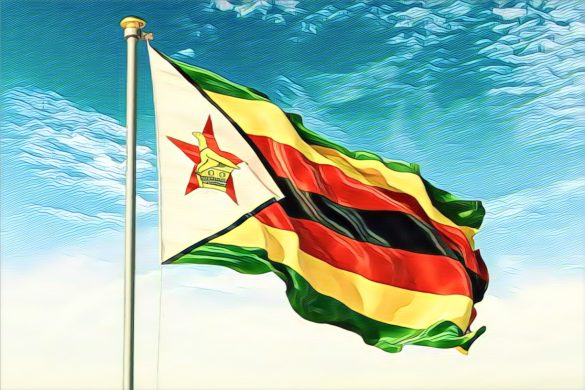Facing a dire El Niño-induced drought, Zimbabwe’s President Emmerson Mnangagwa has made an urgent appeal for over US$2 billion in aid to prevent a looming famine in the nation. This plea is set against a backdrop of growing scrutiny over government expenditure, particularly the lavish treatment of ministers, judges, lawmakers, and chiefs, which has raised questions about the country’s fiscal priorities.
Mnangagwa’s request highlights the severity of the situation, as preliminary assessments indicate that the country needs more than US$2 billion for various interventions to respond to the national crisis effectively. Zimbabwe finds itself in a challenging position, competing for resources with neighboring countries Zambia and Malawi, which have also declared states of disaster due to similar drought conditions. This competition is further exacerbated by global challenges that have reduced available aid.
In his statement, Mnangagwa revealed that 80% of Zimbabwe received below-normal rainfall during the 2023/24 agricultural season, severely impacting the 1,728,897 hectares dedicated to maize and other cereals. The Zimbabwe Livelihoods Assessment Committee Report for 2023 predicts that approximately 2.7 million people will face food insecurity from April 2023 until March 2024, underscoring the urgency of the situation.
In response to this crisis, Mnangagwa has extended a call for assistance to Zimbabweans at home and abroad, the international community, United Nations agencies, development and humanitarian partners, and international financial institutions. He also urged the private sector, religious organizations, and individuals to contribute to the national disaster relief efforts.
This appeal for aid follows similar declarations by Zambia and Malawi, with Malawian President Lazarus Chakwera stating his country’s need for US$200 million to secure food security. Despite Zimbabwe’s strategic grain reserve holding 189,505 metric tonnes of cereals, the country is grappling with a nearly 680,000 metric tonnes deficit of grains needed for food security, requiring at least 2.2 million metric tonnes of grains annually.
Mnangagwa assured that measures are in place to encourage private sector participation in addressing the food shortage, emphasizing that “no Zimbabwean must succumb to or die from hunger.” These measures include securing all available grain in the country through competitive prices and the Grain Marketing Board, and prioritizing food security, including supplementary grain imports.
The government’s efforts to combat the drought extend beyond food security to include the provision of adequate drinking water for people, livestock, and wildlife, recognizing the intrinsic link between food and water security. Initiatives like the Presidential Borehole Drilling Programme aim to ensure access to safe water and prevent water-borne diseases.
The ongoing drought has already resulted in significant livestock losses, with over 9,000 cattle dead and 1.4 million at high risk. Mnangagwa’s administration is committed to supporting farmers to mitigate these losses, highlighting the broader impact of the El Niño-induced drought on the country’s agriculture and food security.


